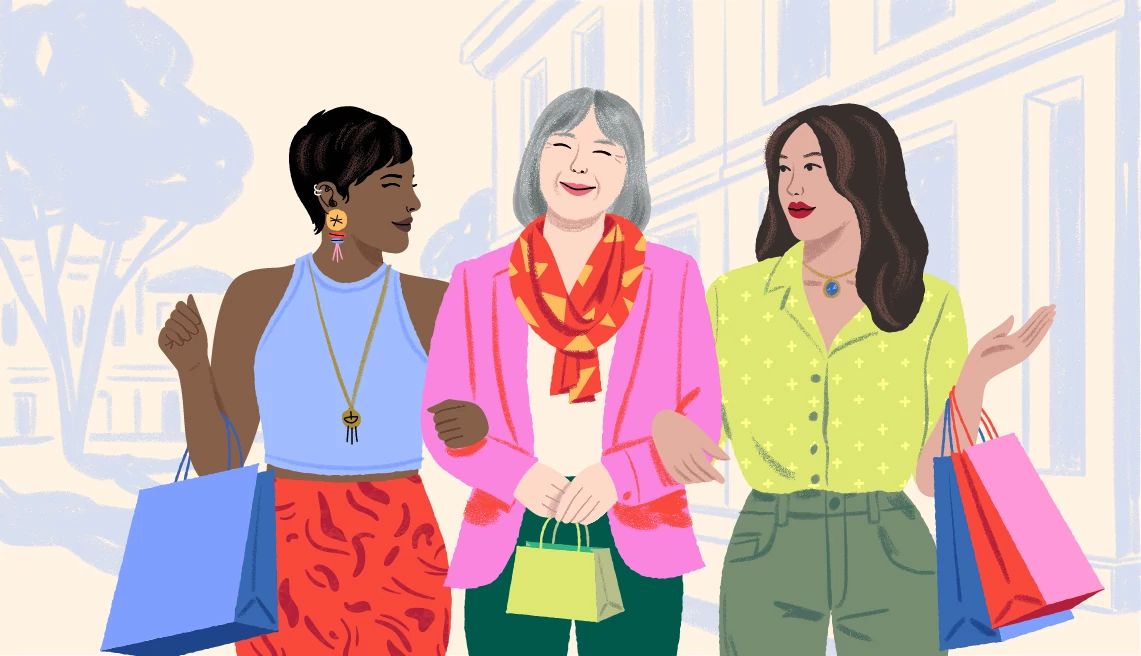AARP Hearing Center


Welcome to Ethels Tell All, where the writers behind The Ethel newsletter share their personal stories related to the joys and challenges of aging. Come back Wednesday each week for the latest piece, exclusively on AARP Members Edition.
At my friend’s birthday party for her 5-year-old daughter, I looked around the outdoor patio and realized my husband and I were the oldest people present by at least 25 years. I’m sure many guests thought we were the grandparents as we sat back and watched a group of excited children dive into the pool.
Although most guests were young mothers, I fit seamlessly into their conversations about preschool activities, sibling rivalry, homework and dinnertime battles. How? Because I raised four children of my own and now have five grandchildren, ages 13 years to 6 months.
With that much experience under my belt, it’s easy to talk to young parents about topics of interest: gentle parenting, the impact of screen time on their kids, parental guilt and the never-ending struggle with healthy eating habits. However, conversations with my younger friends also go beyond the mind-numbing entertainment of Blippi, or how many hours their tweens play Minecraft. We discuss politics and environmental concerns, swap funny Instagram Reels, dish on the Blake Lively lawsuit and ponder a possible Taylor Swift/Travis Kelce marriage.
It helps that my adult kids, who are in their 30s, keep me updated on pop culture references and lifestyle changes, but I genuinely prefer the company of younger people. I love their energy, their youthful outlook and the inspiration gained from a fresh perspective on life.
The benefits of intergenerational friendship work both ways, enriching the lives of younger and older adults who seek companionship from others, no matter how wide the age gap. According to a 2020 AARP survey, roughly 37 percent of people in the U.S. have a close friend who is at least 15 years older or younger than they are. Some 45 percent of those intergenerational friendships have lasted 10 years or more, with 20 percent lasting 20-plus years.
Of course, friendships at any age have health benefits, but intergenerational relationships are especially helpful in boosting mental and physical well-being. Socialization is key to combating depression and loneliness, which is a growing concern for older adults living alone who have fewer opportunities to cultivate new friendships.
Research from the National Institute on Aging has linked social isolation and loneliness to a higher risk of heart disease for older adults, as well as high blood pressure, depression, obesity, a weakened immune system, cognitive decline, Alzheimer’s disease and death.




































































You Might Also Like
How Social Security and Medicare Changed Aging
Historic programs transformed the financial and health care landscape for older Americans
5 Ways AARP Is Fighting for Social Security
AARP is pushing for improved customer service
Does Social Security Cover Costs in Your State?
See how benefits compare with living costs in your state